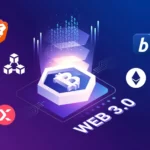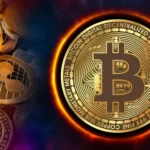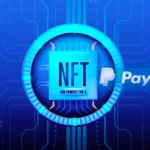The world of blockchain technology is constantly evolving, with new platforms emerging to address the challenges faced by existing ones. Solana, a relatively young blockchain, has quickly gained traction due to its remarkable speed and scalability. This article delves into the innovative features that set Solana apart, exploring its potential to reshape the crypto landscape and redefine the future of decentralized applications.
Unveiling Solana’s Speed Advantage
Solana stands out from its competitors by offering lightning-fast transaction processing capabilities. While other blockchains struggle with congestion and high fees, Solana boasts the ability to handle thousands of transactions per second, making it a viable option for real-world applications that demand speed and efficiency.
At the heart of Solana’s speed lies its Proof-of-History (PoH) consensus mechanism. Unlike the traditional Proof-of-Work (PoW) consensus, which relies on miners competing to solve complex puzzles, PoH utilizes a unique timekeeping system that verifies transactions without the need for extensive computational power. This innovation enables Solana to process transactions significantly faster than PoW blockchains.
Beyond Speed: Scalability for a Decentralized Future
Solana’s scalability is not merely about processing more transactions; it’s about ensuring that the network can handle the growing demands of decentralized applications (DApps) and the influx of users seeking to participate in the blockchain ecosystem. Solana’s unique architecture, comprising a series of parallel processing layers, allows it to handle an increasing number of users without compromising performance.
Enabling a Decentralized Future of Finance and Beyond
Solana’s speed and scalability have attracted a growing community of developers building innovative DApps across various sectors. From decentralized exchanges (DEXs) facilitating seamless and secure crypto trading to decentralized finance (DeFi) platforms offering a range of financial services, Solana is empowering a new wave of decentralized applications.
Beyond finance, Solana is also paving the way for decentralized social media platforms, gaming applications, and even real-time supply chain management solutions. The potential applications of Solana are limitless, and its ability to handle the demands of these decentralized applications is crucial for a truly decentralized future.
Addressing Concerns and Embracing Innovation
Like any emerging technology, Solana has faced its share of challenges. DDoS attacks, which temporarily disrupted network operations, have raised concerns about its resilience. However, the Solana Foundation has responded promptly with security patches and upgrades, demonstrating its commitment to addressing these issues.
Solana’s rapid growth has also led to concerns about centralization, as a small group of validators holds a significant portion of the network’s stake. However, the Solana Foundation is actively working to expand the pool of validators to promote decentralization and improve governance.
Looking Ahead: Solana’s Role in the Future of Blockchain
Despite the challenges, Solana’s innovative architecture, exceptional speed, and growing ecosystem of DApps have positioned it as a leading contender in the blockchain landscape. As the demand for decentralized applications continues to rise, Solana’s ability to handle the increasing load of transactions and users will be crucial in shaping the future of blockchain technology.
Solana’s potential to revolutionize the way we interact with finance, social media, and other online services is immense. While challenges remain, the Solana Foundation’s dedication to innovation and community engagement suggests that the platform is well-positioned to address these concerns and fulfill its promise of a truly decentralized and scalable future.
Conclusion:
Solana’s journey from a relatively unknown blockchain to a prominent player in the crypto ecosystem highlights the power of innovation and the potential of blockchain technology to reshape the way we interact with the digital world. As Solana continues to evolve and address the challenges it faces, it is poised to play a significant role in shaping the future of decentralized applications and the broader blockchain landscape.












